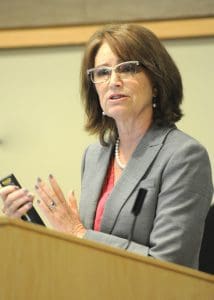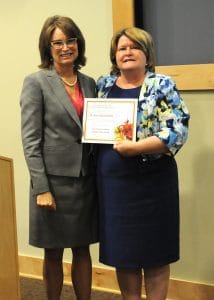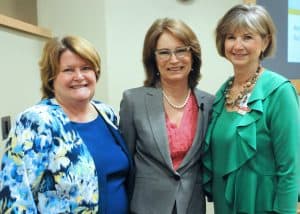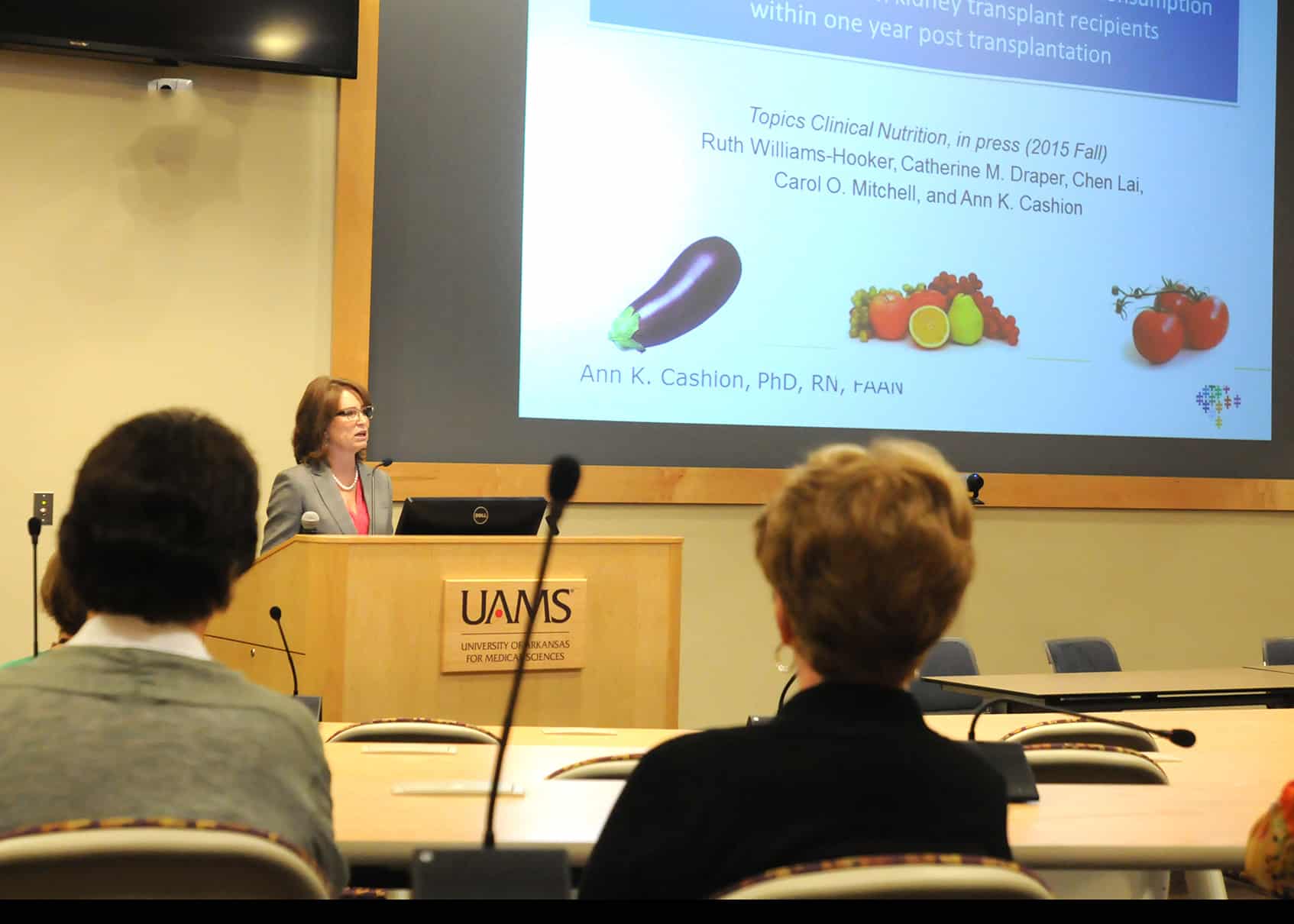UAMS Alumna: Nurses Have Important Role to Play in Research
| March 28, 2016 | Nursing scientists have and will continue to play an important role in research and its impact on health care, a scientific director in the National Institute of Nursing Research told about 50 UAMS College of Nursing faculty, staff and students.

Cashion is a 1982 graduate of the College of Nursing’s master’s degree program, and served as the first chairperson of the college’s advisory board.
Ann Cashion, Ph.D., R.N., a graduate of the college’s master’s degree program and speaker at this year’s Dean’s Distinguished Lectureship on March 17, spoke of the ingrained ability of nurses to view science and research through the lens of clinical outcomes and the impact it has.
“Nursing is a clinically oriented profession, so we understand the gaps in patient care and outcomes, which impacts our view on research,” said Cashion. “When I meet with key researchers from different disciplines, it’s the nursing scientists who are always focused on the difference it makes in patient care.”
Cashion spoke of her own research on weight gain in kidney transplant patients, which found that genetics and certain environmental factors increased the chances a kidney transplant recipient would become obese in the year after transplantation.
“We wanted to be able to predict who was going to gain weight after transplant so we could start them, from the beginning, in a special program to prevent it,” said Cashion. “The next steps are developing personalized approaches through clinical interventions and continue to look at biomarkers.”

Patricia A. Cowan, Ph.D., R.N., dean of the College of Nursing, presents Cashion with a certificate representing a $1,000 donation from the college to the Dr. Ann King Cashion Endowed Scholarship.
Her research found, in addition to six genes that played a role, transplant recipients were more likely to gain weight if at the time of transplant they were of a younger age, had a high carbohydrate consumption, high trunk fat percentage and had a higher quality of life.
“The higher quality of life made a lot of sense to me, because you have a person who has been in dialysis and who has grown accustomed to a low-activity lifestyle,” she said. “After the transplant, they are no longer restricted, they are happier and they tend to eat more.”
Moving forward, Cashion said the role of genetics would continue to grow across health care, and nursing scientists would have a huge role to play in research.
“Nursing scientists can lead teams and create vibrant research programs,” said Cashion. “There are emerging opportunities in research, we just have to look for them and go for it.”

Cashion (middle) with Dean Cowan (left) and Jean McSweeney, Ph.D., R.N., a professor and associate dean for research in the College of Nursing.
Cashion is the scientific director in the Division of Intramural Research for the nursing research institute that is part of the National Institutes of Health. She was a senior advisor to the director of the National Institute of Nursing Research from 2011 to 2012.
Cashion practiced as a critical care nurse in Little Rock, including at UAMS, for nearly two decades. She earned her Master of Nursing Science from UAMS in 1982. Cashion served as the first chairperson of the College of Nursing’s advisory board.
After her lecture, Patricia A. Cowan, Ph.D., R.N., dean of the college, presented Cashion with a certificate representing a $1,000 donation from the College of Nursing to the Dr. Ann King Cashion Endowed Scholarship. The scholarship was established in Cashion’s honor by her family and friends.
